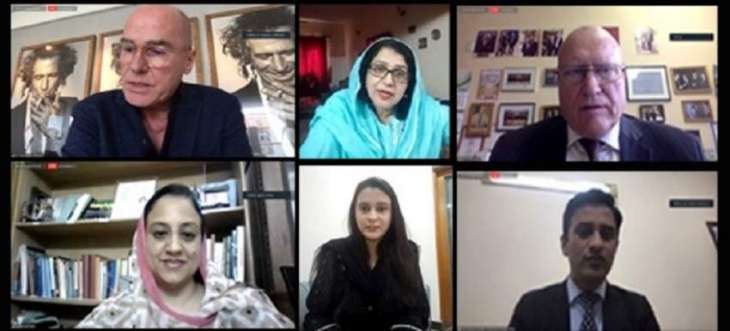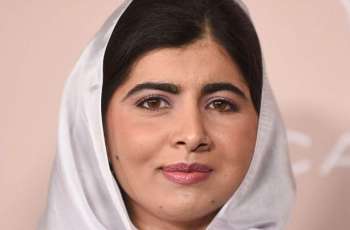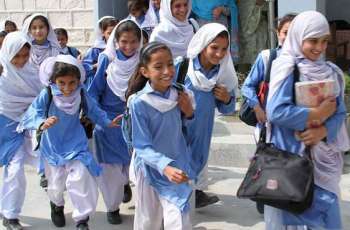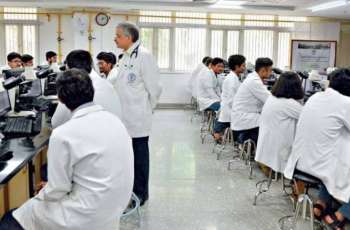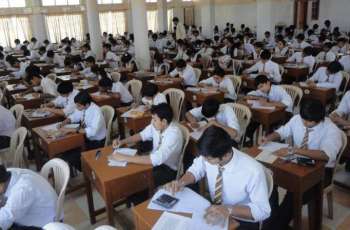Institute of Peace and Diplomatic Studies organized a special webinar “International day of Multilateralism and Diplomacy for Peace” to celebrate the international day of multilateralism and peace with speakers from Pakistan and different parts of the world
Islamabad (Pakistan Point News - 28th April, 2021) Institute of Peace and Diplomatic Studies organized a special webinar “International day of Multilateralism and Diplomacy for Peace” to celebrate the international day of multilateralism and peace with speakers from Pakistan and different parts of the world. There is a joint call for dialogue and effective use of multilateralism and diplomacy for peace and development as the COVID-19 challenge has made the world realize that it is only through joint actions and cooperation that we can save humanity from this once-in-a-century pathogen.
Ms. Farhat Asif, Founder of President Institute of Peace and Diplomatic Studies moderated the session and highlighted the role of IPDS in celebrating this international day as a regular feature of the institution. Qazi Saleem Ahmed Khan, Director (Human Rights and Humanitarian Affairs), Ministry of Foreign Affairs, Govt of Pakistan shared his insight in promoting peace and diplomacy and how Pakistan is playing its meaningful part at the global and regional forums.
He shared that Pakistan is supporting multilateralism and is an active member of the UN and other global and regional organizations. He said that Pakistan strongly believes in the three main pillars of the United Nations, including development, peace, and human rights. Pakistan is striving to contribute constructively to the agenda-setting, policy formulations, and normative development undertaken through multilateral fora. Pakistan has a firm commitment to promote regional and international peace and security, sustainable development, climate action, and protection of human rights and fundamental freedoms to all.
From Moscow, Chairman of Association of Russian Diplomats’ Ambassador Igor Khalevinskiy explained the essence of multilateralism and diplomacy in the present era and gave examples of the Belt and Road Initiative and other such initiatives to build closer cooperation among countries to support development and peace. Prof. Dr. Amna Mahmood, Dean Faculty of Social Sciences, IIUI said in her remarks that multilateralism and diplomacy are the only option for the survival of this universe and are the need of time to cut human sufferings, disaster management, and climate change.
Further, she said that cultural connectivity and understanding of religions, values, and customs will help bind and build a binding force for people-to-people connectivity, and we have to deviate from the old scripts and the decision-makers to cooperate through diplomacy. Dr. Aiysha Safdar, Head-Dept of International Relations, Kinnaird College for Women University, focused her discussion on South Asia and challenges to multilateralism. Highlighting the ongoing pandemic situation in the region, she said that the primacy of military security over the neglect of human security has undermined national development and national security.
Maintenance of international peace and stability like human security, climate, and environmental change are some of the critical issues of International relations in the present time. She said through multilateralism, consultation, collaboration, and cooperation, challenges to human security issues in South Asia can be resolved. From Berlin, Dr. Hubertus Hoffmann, President and Founder of World Security Network Foundation-Codes of Tolerance, highlighted the missing link in the entire action and dialogue of multilateralism and diplomacy that is humanity and meaningful participation of the people.
He said that there is a need to convert all the dialogue and communications in the action plans and resolve the issues of human rights, security, and development challenges. A larger number of students, faculty members from across the world and Pakistan participated in the virtual seminar.
